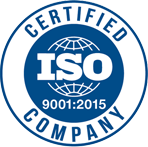PHARMACEUTICAL AND MEDICAL DEVICES INDUSTRY
SAP Manufacturing Execution System (MES), Critical for the Pharmaceutical and MEDICAL DEVICES Industry
For many companies in the medical space today, keeping up-to-date and leveraging the newest manufacturing IT/OT technologies must be a high priority. Numerous healthcare trends around the world are combining to add new layers of complexity over an already complicated atmosphere for medical manufacturers. Indeed, today’s drug and medical device producers face unprecedented challenges, including smaller segmented drug batch sizes, expectations of shorter time-to-market (COVID vaccines being a perfect example), and increased regulatory complexity that includes current and pending serialization mandates. These are new challenges requiring innovative solutions.
MES helps the medical industries achieve compliance with regulatory authorities in various locations worldwide, including GMP requirements and FDA mandates for electronic records and e-signatures. As well, compliance with anti-counterfeiting requirements.
The MES solution functionality should comply with regulatory requirements, such as FDA guidelines 21 CFR Part 11 and 21 CFR Part 210/211, as well as EU GMP guidelines including the GMP Annex 11 for Computerized Systems Guidelines.
Individualized medicine and the proliferation of companies targeting therapies for smaller patient populations means that manufacturing systems must be flexible enough to accommodate frequent line or product changeovers without negatively impacting compliance. MES technology is helping manufacturers to optimize development, resource planning and supply chain efficiency when adapting their operations to meet the needs of smaller batch production. Or continuously evolving standards, regulations and product recall-ability robustness in the medical device industry.
The thought of digital transformation of the production process and integrating technology into their company may seem expensive but also daunting.
With RTS, we start by looking at your business objectives to determine the manufacturing execution system (MES) requirements and value roadmap. We, along with your production performance and compliance team, conduct brainstorming/blueprint sessions to develop the Digital Transformation roadmap to deliver on the objectives. Manufacturing in the medical space is complex, for example in pharmaceutical: recipe management, batching, blending, weigh & dispense, traceability, packaging, all while maintaining benchmark yield levels and regulatory compliance.
For medical manufacturers, an end-to-end MES could be used to shift your company culture towards one of continuous improvement, deliver digital transformation and actionable intelligence. These are the initial steps to creating the “Intelligent Factory”, and when we intimately connect the intelligent factory to the enterprise business system, we foster the potential of an “Intelligent Enterprise”.
How Can MES Software Optimize a Shop Floor?
The shop floor is one of the most critical components of a manufacturing company. It’s where the magic happens. After all, its where raw material turns into finished product. However, machines break, batch times run longer than planned and human error is not uncommon. Without a well-oiled shop floor, a company cannot continue to outperform competitors.
To stay ahead of the curve, manufacturers need a solution that will help their employees work smarter and more efficiently. That’s where MES software comes into play.
SAP MES solutions provide the tools to help any manufacturing team run the shop floor smoothly, strategically, while maximizing profitability. The ability to make quick, confident decisions in real-time is the key to staying competitive. This is impossible with traditional spreadsheet-based systems or siloed point solution approaches.

MES software can do more for medical manufacturing companies than traditional management approaches. It has the ability to:
- Provide real time visibility to production and process anomalies.
- Provide automated electronic batch records (EBR’s).
- Provide extensive re-work records.
- Foster continuous improvement and optimize your shop floor.
- Capture electronic signatures or employee biometrics.
- Track and trace materials throughout the process.
- Identify issues or potential problems before they happen.
- Deliver a holistic production data lake for AI/ML analytics.
- Integrate easily with existing systems.
- Empower employees with the data and insights to make manufacturing smarter.
- Remove non-value adding actions and anecdotal evidence of losses.
- Reduce compliance risks via human error.
There are problems that companies face industry-wide, many of which can be remedied with an MES solution. Let’s take a look at a few of the most common issues medical manufacturers face to determine how MES software can help.
Problem 1: Production Costs Are Rising

Medical companies are facing undeniable global pressure for regulatory compliance, anti-counterfeiting and smaller batch runs. Human error can also have a drastic effect on product suitability.
Every cost increase directly impacts manufacturers’ bottom line. So, what can be done?
The complex and regulated medical production process is burdened with strict reporting requirements. As well, when it comes to raw materials or components, and mid-stream materials, the best thing manufacturers can do is to make sure their shop floor and overall operations are consistent, efficient, minimal downtime and maximize raw material or yield.
In terms of labor, we have no choice but to do more with less. We must empower staff with sharp tools that help get the job done quickly and right the first time.
An MES solution, fulfilling your manufacturing business objectives, can quickly and easily analyze performance and trends based on shifts, crews, individuals, materials, equipment, production lines, products, and packaging, to drive operational improvements.
The right MES software can identify opportunities for improvement when it comes to performance, product innovation as well as bottlenecks on the factory floor. With this technology, manufacturers are able to analyze product costs relative to targets to better gauge overall cost and profit analysis.
With MES software, end-to-end yield tracking is more accessible. Companies can identify causes of yield, delays and labor loss from production line operations to final assembly in order to reduce manufacturing costs. This also helps to improve the overall plan attainment.
Problem 2: Integrating Technology Comes With a Steep Learning Curve
Adopting technology can be a challenge for many companies, not everyone has the tech-savvy resources, at times the willingness to change needs to be overcome.
How are medical manufacturers supposed to keep up with the sweeping change?
Selecting an SAP MII, ME or DMC solution that is tightly integrated with the SAP business system to achieve an Intelligent Enterprise. Medical manufacturers need an MES solution that can not only fit into their current processes but improve them.
MES delivers features that help manufacturers work smarter, not harder.
The SAP MES allows companies to do the following easily:
- Deliver individualized medicine.
- Provide counterfeit protection.
- React to problems and implement new solutions faster.
- Drive continuous improvement company-wide.
- Measure factors like downtime, labor, plan attainment, and first pass yield in real-time.
- With SAP’s highly flexible solution companies can remove disparate band-aid solutions for a more efficient and holistic shop floor.
- Gain transparency across the company.
SAP ME or DMC provides complete role-specific views and offers multiple languages for its users. Also, there’s no coding or programming required; it’s a complete out-of-the-box solution.

Embracing Technology Will Ensure Survival
For most medical organizations, there’s an existing mentality that integrating technology into business is complicated and invasive, SAP MES delivers high integration capabilities that enable to NOT “rip and replace” but migrate into the shop floor landscape in a paced value add controlled fashion.
For example, evolving regulatory guidelines, particularly those related to serialization and track-and-trace requirements, are making compliance difficult, if not impossible to achieve using manual systems. The need to assign unique identifiers to each individual finished product packaging entity demands that automation be used to address production rate constraints and information management requirements.
The goal of adding software to your shop floor is to increase margin by producing more via reducing production anomalies and by reducing costs. Though MES initially comes at an additional cost, the return on this investment is going to benefit the business in the long-term and add value to the bottom line. Being able to measure a tangible return is what sets a company up for lasting success.
Adding technology to the shop floor is only as complicated as the company makes it. Start by rolling out high-value point solutions, like Overall Equipment Effectiveness (OEE), or real-time visibility to production key performance indicators via Andon boards. Or, a part serialization system for genealogy or to record all production parameters for each manufactured assembly. Once that becomes a natural part of your operation, more can be added to increase your efficiency.
Digitally Transform and Optimize Your Pharmaceutical and Medical Device Production

Supercharge your continuous improvement program by gaining increased visibility, proactive alerts and tighter control over your operations. Real time, high-fidelity datapoints from every part of your manufacturing operation, builds the “data lake foundation”, allowing AI/ML/Deep Learning analytics to drive prescriptive insights with accurate information supporting good business decisions for every step of production.
Easy access to this comprehensive information (you can even ask Apple SIRI for your current shop floor performance info) allows you to quickly identify manufacturing losses, measure metrics such as plan attainment and overall equipment effectiveness (OEE) KPI’s to boost efficiency across the production line. Thus, accelerating continuous improvement in your facility.
Quality Control Management
Traditional methods, because of their lack of control and consistency compared to more advanced technology, leave room for misinterpretation and human error when it comes to quality control.
How can MES software help with quality control?
This technology eliminates error by:
- Real-time flagging and tracking of part checks.
- Immediate PASS/FAIL on QA checks to ensure only good quality moves to the next process.
- SPC trending of critical parameters.
- Alerting the right team or person if something needs attention.
- Eliminating falsification, delayed data reporting and data manipulation.
- Regular checks into operator workflows to remove the reliance on human watch and check processes.
MES software is built to optimize the shop floor by providing accurate data, real-time alerts, and more transparent communication between employees and teams. Medical manufacturers can’t afford to slip up on quality control and MES software minimizes the effort without compromising the diligence.
